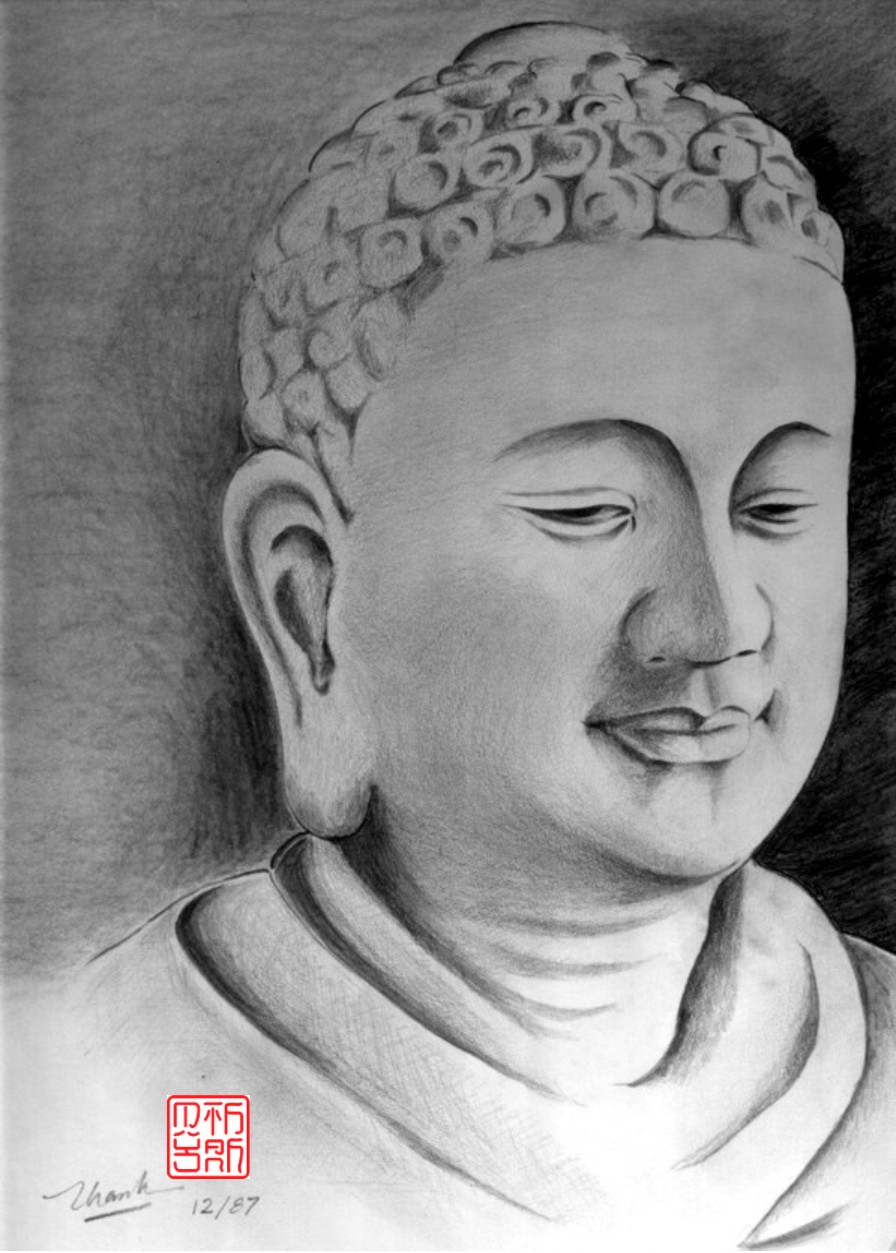
![]()
A message from Sakyamuni Buddha
Sakyamuni
Buddha, the Buddha, came to this world and then departed more than two
thousand five hundred (2,500) years ago. However, his message of
Compassion,
Wisdom, and
Strength to us is stronger and
more significant than ever.
|
The Buddha was a man. He was not a God
and did not possess a supernatural power. He never claimed that he
was
The
Savior.
He came to this world in the same way as
we did. And because he knew how man suffered, he was able to find
the way to end man’s suffering. After six years of learning and
practicing austerity, he was not satisfied. Finally, he resolved to
abandon the austerities; and after forty-nine days of intense
meditation, he discovered the causes of suffering: birth, old age,
sickness and death. He attained enlightenment and taught us the way
to end suffering. He was only a teacher who
conveyed
his knowledge to us. If we practice what he taught, we will find
happiness and peace. If we do not follow his instruction, he will
neither entice nor threaten us. |
 His message of
Compassion:
His message of
Compassion:
The Buddha devoted his life to the pursuit of true happiness of mankind. In
the Buddha, we clearly see a perfect example of Compassion. Since its
existence, Buddhism never compelled, enticed, or frightened anyone to
convert to this religion. Everyone who became a Buddhist did so willingly.
In its history of two thousand and five hundred years, Buddhism propagated
all over the world; there has never been a single killing of people who
resisted Buddhism. The Buddha promoted the precept of “Avoid Killing”, which
is his profound message of
Compassion.
His message of
Wisdom:
The Buddha was more concerned that people should follow his teachings after
a thorough examination and understanding of the facts. He taught that
“blindly following his teachings is insulting him.” His followers are free
to join Buddhism; they are not threatened, or enticed through marriage or
monetary gain.
We cannot attain Wisdom in Buddhism through education or experience in life; but we must undertake the process of keeping the Precepts and practicing Concentration. Without going through the first two steps, we could never achieve true Wisdom. Nowadays the ordained monks of the Sangha, who live in the monastery tens of years but did not practice the first two steps–keeping the Precepts and practicing Concentration–are basically “freeloader”; they always rely on or benefit from the Buddhist community and give nothing back. They deceive their followers and degrade the Dharma.[1]
We must understand that the Buddha was the Enlightened One, not the Powerful
One who took advantage of his followers.
His message of Strength
:
Strength
in Buddhism does not mean physical force, but an inner strength, the quality
of being brave and determined in a difficult situation.
True Buddhist does not fear any power, including human power and deity
power. Venerable Thich Quang Duc self-immolated in 1963 to protest against
religious oppression under the Diem’s government; his act represented a
highly regarded
inner strength
in Buddhism. Now under the ruling of the Communist in Vietnam, Venerables
Huyen Quang, Quang Do, Duc Nhuan, Vien Do, Khong Tanh continue to fight for
religious freedom and a democratic Vietnam; they are setting a clear example
of strength.
In addition, victims of Human Rights violation in Vietnam, such as
Father Nguyen Van Ly, Colonel Vo Dai Ton, Doctor Nguyen Dan Que, prisoner
Nguyen Chi Thien, and the younger generation in Vietnam today show their
strength in resisting to tyranny
and dictatorship.
Jean-Paul Sartre once said: “Hell is other people.”[2]
This quotation exposed a selfish character. In contrast, the Buddha
encouraged us to serve mankind in saying: “Serving other people is showing
gratitude to the Buddha.”
* * *
The Dharma is a
set of teachings and rules for us to learn and practice. If we do not
practice what we learned, then the Dharma would be of no use to us and to
other people. Once, Do Phu, a renowned poet under the Tang dynasty of China,
went to visit the Zen Master O Sao. He asked the Master about the Dharma.
Master O Sao only said a short gatha, which could be interpreted as follows:
“Avoid bad deeds,
Cultivate wholesome acts,
Keep the mind
pure,
Those were the Buddha’s
teachings.”
The poet dismissed the
answer and joked:
“I thought the Buddha’s
Teachings were sublime and unattainable; what you have said was so simple
that even a three-year-old child could do!”
“True! Every child
could understand those words, but a seventy-year-old man could not practice
them.”

Vu Lan 2011, Buddhist Era 2555
Thien Man
[1]
Dharma is a Sanskrit word that has several meanings: Things, Events,
Phenomena, Duty, Law, Doctrine, and Ultimate Truth. In general,
Dharma means the Buddha’s Teachings.
[2]
Jean-Paul
Sartre (1905-1980) was a French
existentialist philosopher. His famous
quotation “L’enfer,
c’est les autres”
(“Hell is other people”) has its origins in the
No Exit, a 1944
existentialist
French
play by
Jean-Paul Sartre.
The play depicted an
afterlife
in which three deceased characters were punished by being locked
into a room together for eternity.
Tien Le Publisher 2011 - All Rights Reserved